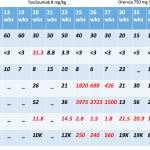Dr. Tan was awarded a scholarship to Johns Hopkins University in Baltimore in 1950, where he obtained a bachelor’s degree in chemistry in 1952. Then it was on to medical school, also at Johns Hopkins. “I was very interested in research from early on,” notes Dr. Tan. For example, during the summer following his first year in medical school, Dr. Tan stayed at the campus for a few weeks to do experiments in dog physiology.
During an internship at the Duke University Medical Center in Durham, N.C., from 1956–1957, Dr. Tan participated in literature reviews hosted by Professor Eugene Stead, MD. “I presented papers by a well-known doctor who did work on streptococcal infections and the complications of acute rheumatic fever and glomerulonephritis. That really fascinated me,” he recalls. The author of those papers was Charles Rammelkamp, MD, who taught at Case Western Reserve University in Cleveland. Dr. Tan decided to do his residency at Case Western and, after two years as assistant resident and one year as chief resident, he stayed on for another two years as a research fellow in Melvin Kaplan’s lab, working on streptococcal glomerulonephritis.
It was Dr. Rammelkamp who suggested that Dr. Tan work with Henry Kunkel. “The two people who were the foundations of my research career were Drs. Rammelkamp and Kunkel,” Dr. Tan says. “Henry Kunkel was one of the founding fathers of clinical immunology in the world,” he says. “He was a clinical scientist in the highest sense of the word and mentored many leaders in the ACR.”
After his time at Rockefeller University, Dr. Tan spent two years at the University of Washington in St. Louis as an assistant professor. He then moved to the Scripps Research Institute in La Jolla, Calif., where he became the head of the division of allergy and immunology and, later, head of the division of rheumatology.
Discoveries Mount
“The labs at Scripps were outstanding,” notes Dr. Tan, “but, after 10 years there, I found that I needed access to more clinical specimens for my autoantibody studies.” He moved to the University of Colorado Health Sciences Center in Denver as professor of medicine and head of the division of rheumatic diseases. Collaboration with Gerald P. Rodnan, MD, from the University of Pittsburgh, produced another groundbreaking paper, this time in scleroderma. Drs. Tan and Rodnan demonstrated the diversity of antinuclear antibodies present in the sera of patients with progressive systemic sclerosis, and found that the anticentromere antibody appeared to be highly selective for the CREST variant of PSS, and anti-Scl70 (also known as DNA topoisomerase I) to be highly diagnostic of the systemic form of scleroderma.3
Time as a Mentor
Returning to Scripps after five years in Colorado, Dr. Tan became professor and head of the W.M. Keck Autoimmune Disease Center, Department of Molecular and Experimental Medicine. He is now professor emeritus and continues to consult and work with former fellows from Scripps, many of whom, like Dr. Chan, Gregory J. Tsay, MD, and Yoshinari Takasaki, MD, in Tokyo, have established their own highly successful research laboratories.


